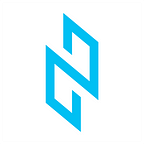Neuromation Team at the Basel Life
Neuromation’s Chief Research Officer Sergey Nikolenko and Head of New Initiatives Maxim Prasolov recently took part in BASEL LIFE, Europe’s leading life sciences conference in Basel, Switzerland.
Organised by the European Association for Life Sciences and the European Molecular Biology Organisation (EMBO), BASEL LIFE brought together researchers and scientists showcasing the latest advances and research on topics such as: aging, drug discovery, antibiotics research, biotherapeutics, genomics, microfluidics, peptide therapeutics, and artificial intelligence.
In a panel discussion on “AI in healthcare”, Sergey Nikolenko participated alongside Chris Schilling of Juvenescence, Pascal Bouquet of Novartis, Verner De Biasi of GSK, and Neuromation partners Alex Zhavoronkov and Poly Mamoshina of InSilico Medicine.
Neuromation’s Sergey Nikolenko also delivered a presentation titled Deep Learning and Synthetic Data for Healthcare as part of the Innovation Forum on Artificial Intelligence and Blockchain in Healthcare.
In his presentation, Dr. Nikolenko discussed many of the major obstacles to AI adoption in healthcare, including the lack of sufficiently large datasets, lack of labeled training data, the difficulty of explaining results and the risk of systematic bias. He then demonstrated some key advantages of Neuromation’s synthetic data approach in this field. For example, in computer vision applications Neuromation can create 100% accurate labeled data with pixel-perfect labeling, which is very hard or impossible to do by hand. Furthermore, Neuromation’s approach increases the speed of automation by orders of magnitude and is several times cheaper than hand labeling.
As an example of Neuromation’s work in the area of drug discovery, Dr. Nikolenko presented a project in which our researchers are trying to introduce novel augmentation or data transfer techniques using GANs and other generative models. Neuromation is currently collaborating with Insilico Medicine to generate fingerprints of molecules likely to have desired properties using conditional adversarial autoencoders.
Also discussed were papers published in leading scientific journals by Neuromation data scientists on topics such as breast cancer histology image analysis, pediatric bone age assessment, and diagnosis of diabetic retinopathy. Specific mention was also made of Neuromation’s collaboration with EMBL (European Molecular Biology Lab) on processing spatially structured multidimensional data originating from imaging mass-spectrometry in order to study the cell cycle via metabolomics.
While many of the above examples served to highlight the case for synthetic data in healthcare, other problems facing the field were also discussed. One of these was the lack of trust that healthcare data providers have in public clouds given the sensitivity of healthcare data. Nonetheless, we believe these providers still need the vast computational power and ease of use provided by public clouds to train their models; one possible solution would be to bring this to the data providers by developing private cloud solutions.
Another problem is the shortage of AI talent. There are only approximately 22,000 deep learning experts in the world right now, most concentrated in only a few geographies.
These two problems are currently being addressed by the Neuromation Platform, which is now in development. The toolsets provided by the Neuromation Platform will enable a far larger cohort of software developers to undertake meaningful AI research and development, while the platform’s cloud-agnostic distributed compute service for training of AI models will allow for access to public cloud compute power while maintaining data security and independence. Both of these are of crucial importance to the healthcare industry and could contribute meaningfully to the progress of AI development.
Neuromation looks forward to connecting with the many world-class scientists and researchers we met at the BASEL LIFE conference in the future. We would also like to personally thank Alex Zhavoronkov of Insilico Medicine for his efforts in organizing Neuromation’s attendance and his invaluable assistance throughout.
